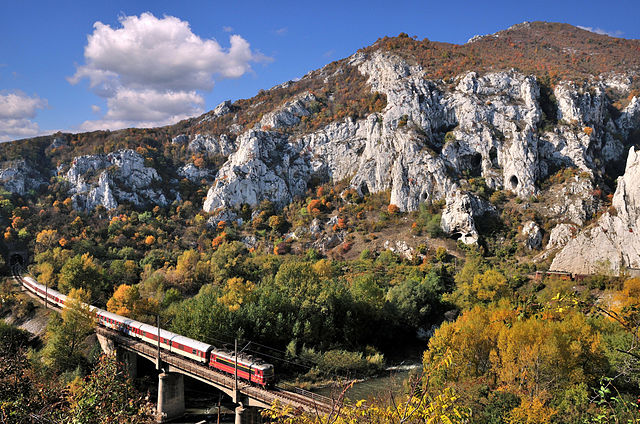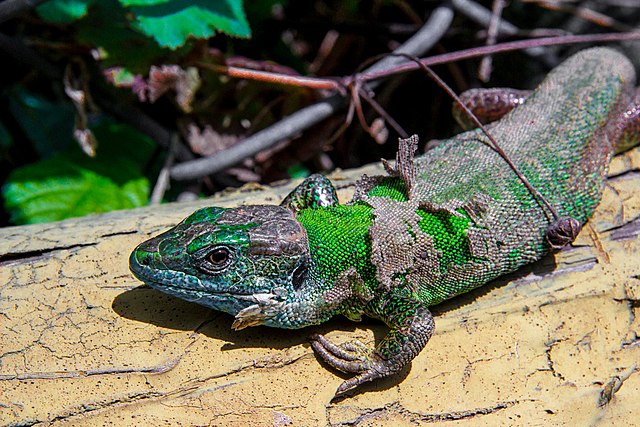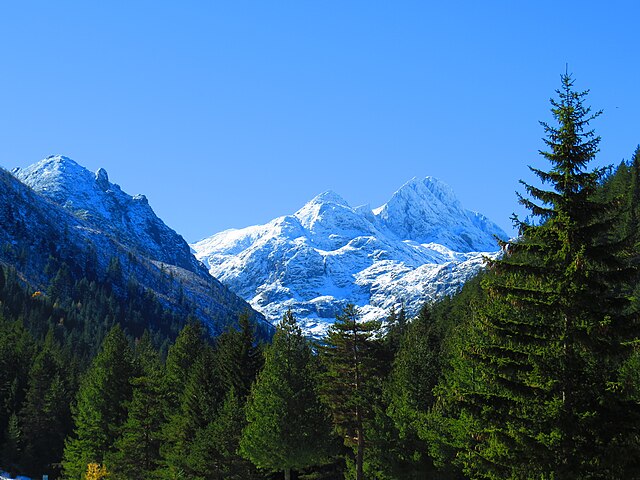Last national finalists should be announced and we are going to know the WLE winner of 2015. Meanwhile take a look at best photos from Bulgaria.
Iskar Gorge

The Iskar Gorge is a gorge passing through the Balkan Mountains in Bulgaria. It connects Sofia and Mezdra.
The road and railroad follow the course of the Iskar River through a winding, scenic canyon.
he Natural Park “Vrachanski Balkan” is the second largest of the country’s parks, which covers the Vratchanska Mountain and the massif of the Lakatnishki cliff rocks. It has a territory of 28 844 ha most of which is covered with karst limestones, 1 300 meters thick. Unique in their beauty caves and chasms can be seen in the park.
On the territory of the park have been registered about 950 species of high plants, of which more than 80 are rare species. From scientific and preservation point of view the most interesting species are the groups living in the caves (vertebrates and bats) and the day birds of prey. There are 214 registered species of vertebrates in the park.
Little bittern

The little bittern is a wading bird in the heron family Ardeidae, native to the Old World, breeding in Africa, central and southern Europe, western and southern Asia, and Madagascar. Birds from temperate regions in Europe and western Asia aremigratory, wintering in Africa and further south in Asia, while those nesting in the tropics are sedentary. It is rare north of its breeding range.
Banded demoiselle

The banded demoiselle is a species of damselfly belonging to the family Calopterygidae. It is often found along slow-flowing streams and rivers. It is a Eurasian species occurring from the Atlantic coast eastwards to Lake Baikal and northwesternChina.
This is a large damselfly with a total length of up to 48 millimetres (1.9 in) and a hindwing length of up to 36 millimetres (1.4 in).
The male has translucent wings which each have a broad, dark iridescent blue-black spot (or band) across the outer part. On immature dragonflies the spot is dark brown. The body can be a metallic blue or bluish green or a combination of both colours, depending on the time of year and location.
Radomir peak

Radomir is a peak on the Bulgarian–Greek border. At 2,031 metres (6,663 ft) it is the highest peak in the Belasica (Greek: Béles or Kerkíni) range. It is also known by its earlier name Kalabak.
The peak was named after the Bulgarian Emperor Gavril Radomir who took part in the battle of Kleidion in the Belasitsa mountains.
Radomir is located 9 kilometres (5.6 mi) south-west of Petrich, the nearest town on the Bulgarian side.
Belogradchik Rocks

The Belogradchik Rocks (Bulgarian: Белоградчишки скали, Belogradchishki skali) are a group of strange shaped sandstone andconglomerate rock formations located on the western slopes of the Balkan Mountains (Stara Planina) near the town of Belogradchik in northwest Bulgaria. The rocks vary in color from primarily red to yellow; some of the rocks reach up to 200 m in height.
Many rocks have fantastic shapes and are associated with interesting legends. They are often named for people or objects they are thought to resemble. The Belogradchik Rocks have been declared a Natural Landmark by the Bulgarian government and are a major tourist attraction in the region.
European green lizard

The European green lizard is a large lizard distributed across European midlatitudes from Slovenia and eastern Austriato as far east as the Black Sea coasts of Ukraine and Turkey. It is often seen sunning on rocks or lawns, or sheltering amongst bushes.
There is an ongoing discussion as to whether Lacerta viridis and Lacerta bilineata are separate species. Genetic data weakly supports their separation into two species but more investigation needs to be done.
Vihren

Vihren is the highest peak of Bulgaria’s Pirin Mountains. Reaching 2,914 metres (9,560 ft), it is Bulgaria’s second and the Balkans’ third highest, after Musala and Mount Olympus. The peak is located in Pirin’s northern parts. The easiest route is from the Vihren chalet (2,000 m), reaching the summit from the south.
Other routes include those from Banderitsa chalet (1,800 m) or across the ridge Koncheto from the north. A number of Pirin’s lakes are located around the peak, as is Europe’s southernmost glacial mass, the Snezhnika glacielet.
Rila

Rila is a mountain range in southwestern Bulgaria and the highest mountain range of Bulgaria and the Balkans, with its highest peak being Musala at 2,925 m.

The massif is also the sixth highest mountain in Europe (when each mountain is represented by its highest peak only), coming after the Caucasus, the Alps, Sierra Nevada, the Pyrenees and Mount Etna, and the highest between the Alps and the Caucasus. More than one-third of the mountain is occupied by the Rila National Park, the rest lies within the Rila Monastery Nature Park.
Great egret

The great egret, also known as the common egret, large egret or (in the Old World) great white heron, is a large, widely distributed egret. Distributed across most of the tropical and warmer temperate regions of the world, in southern Europe it is rather localized. In North America it is more widely distributed, and it is ubiquitous across the Sun Belt of the United States and in the Neotropics. The Old World population is often referred to as the great white egret. This species is sometimes confused with the great white heron of the Caribbean, which is a white morph of the closely related great blue heron.
References:
- https://en.wikipedia.org/wiki/Iskar_Gorge
- http://www.vr-balkan.net/en/about-the-nature-park/
- https://en.wikipedia.org/wiki/Little_bittern
- https://en.wikipedia.org/wiki/Banded_demoiselle
- https://en.wikipedia.org/wiki/Radomir_(peak)
- https://en.wikipedia.org/wiki/Belogradchik_Rocks
- https://en.wikipedia.org/wiki/European_green_lizard
- https://en.wikipedia.org/wiki/Vihren
- https://en.wikipedia.org/wiki/Rila
- https://en.wikipedia.org/wiki/Great_egret
